Water-resilient cities learning event: “Groundwater – Making the invisible visible”
A dialogue and exchange on innovative approaches to groundwater management in African cities
How to improve the water resilience of African cities? To shed light on this important topic, the Water Resilient Cities Learning Event on 30 March 2022 promoted an exchange on groundwater – a water source that is increasingly being recognized and gaining importance as an alternative water source in addressing diminishing surface water, but remains poorly understood and undervalued.
Many African cities are facing rapid urbanization, droughts, and other threats and challenges to their water supply and are increasingly struggling to meet their water demands. These challenges have led to a greater interest towards tapping into groundwater for building water resilience – a water resource whose integration into most cities’ long term water resource management plans has been absent. While diversifying of water sources can be one of the measures for building urban water resilience, more attention needs to be given to the sustainable use of groundwater and to avoid turning to groundwater during a crisis in a rushed and unplanned manner, with limited knowledge about the use and management of this resource. In addition, protection of groundwater is often insufficient, leading to increased incidents of pollution.
Issues of integrated governance and management, pollution control, recharge, management of the reserve, and environmental requirements are pertinent to a sustainable use of groundwater. Compared to surface water, groundwater issues have an added level of complexity, given its nature of being hidden, unnoticed, less understood, and the links between the resource and users not being obvious. Given that groundwater increasingly plays a strategic role in building water resilience for African cities, in particular for cities that are not able to meet their water demands through surface water sources, there is a need for enhanced dialogue on the new role of groundwater as well as sharing of innovative approaches towards its sustainable use and management.
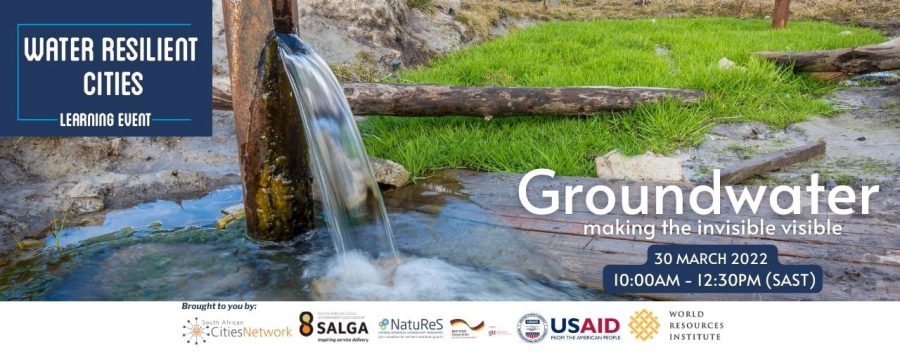
To provide an exchange platform for African cities that are increasingly exploring groundwater resources as an alternative and additional source to meet their rising water demand and to become more resilient to droughts and the effects of climate change, a jointly organised event by South African Local Government Association (SALGA), the South African Cities Network (SACN), the USAID’s Water Sanitation and Hygiene Finance Program (WASH-FIN), and the GIZ‘s Natural Resources Stewardship Programme (NatuReS) intended to:
- promote and unpack the discourse around the use of groundwater for water supply
- discuss how groundwater can add to support cities’ water resilience and what are challenges around its use
- highlight the innovative ways African cities are adopting to ensure sustainable management of groundwater sources in urban areas
- provide an opportunity for lesson-sharing among managers and practitioners for improved groundwater management in cities
Keynote Address
For this, Eng. James Sauramba, Executive Director of the Southern African Development Community’s (SADC) Groundwater Management Institute, provided an insightful keynote address on “Contextualising the significance of groundwater for sustainable conjunctive water resources management in urban areas in the SADC region” to set the scene of the event. To this end, he introduced the characteristics and challenges of groundwater use, gave some tangible examples of case studies from Dar Es Salaam, Tanzania, and Windhoek, Namibia, and promoted a framework for sustainable conjunctive use and management of groundwater.
South African National Perspectives
Subsequently, the event shed light on the South African national perspectives. Dr. Moloko Matlala, Chief Director for National Water Resource Information Management at the South African Department of Water and Sanitation (DWS), highlighted the “importance of sustainable management of groundwater as a freshwater resource”. He stressed the importance and potential of groundwater for South Africa, but also emphasized that the knowledge around it in the country is not, yet, where it needs to be to make responsible use of this resource for increased cities’ water resilience. The DWS aims at changing this to make the resource visible and bring government practitioners and other stakeholders to work together for its protection and use in a sustainable way.
Dr. Shafick Adams, Executive Manager for Water Resources and Ecosystems at the South African Water Research Commission (WRC) presented the “research findings on the sources and management of groundwater”. He made emphasis on the point that groundwater is a very localised resource that is not readily available all over the country and continent. Furthermore, groundwater has been promoted lately, but, unfortunately, often incorrectly as there is an imbalance between (drilling) technology and the scientific understanding of the source. Certain factors for a better utilization are available (e.g. vison, resources) and certain things are already done rightly (e.g. procurement, drilling), while other aspects still need improvement (e.g. scientific approach, best practices, trained professionals).
This first session was then closed with a Q&A session facilitated by William Moraka, Head for Technology and Innovative Projects at the South African Local Government Association (SALGA). Questions circled around the “appetite” for groundwater and why there seems to be less attention for it, which are the hurdles improved groundwater management, and the relationship between the Water Research Commission and municipalities in exploring groundwater potential.
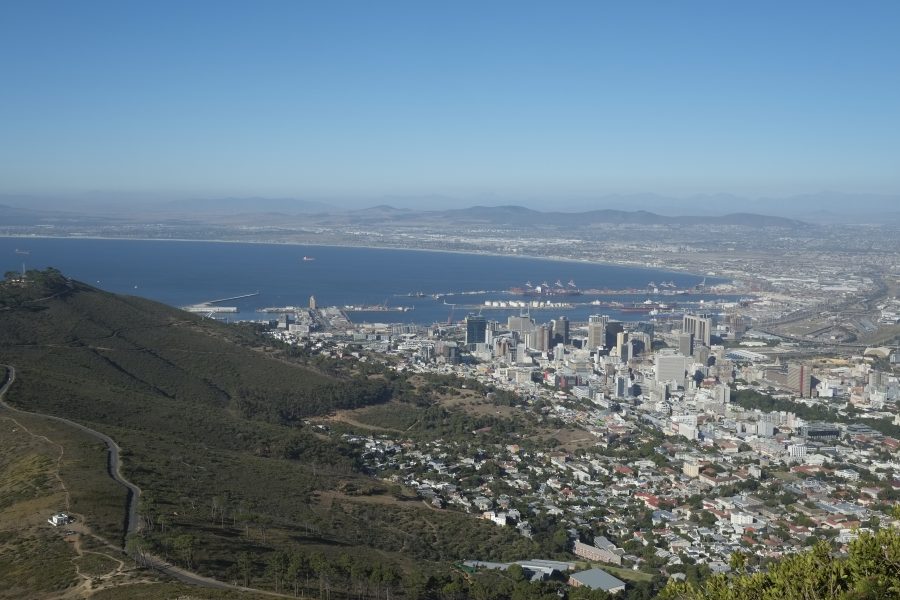
South African cities in action
The second session that was moderated by Amanda Nyingwa, Technical Advisor at GIZ’s Natural Resources Stewardship Programme (NatuReS), looked at “South African Cities in Action”. The first input by Dr. Anna Taylor, Urban Climate Adaptation Research Fellow at the African Climate and Development Initiative (ACDI), University of Cape Town (UCT), and Dr. Ffion Atkins, Postdoctoral Research Fellow at the African Climate and Development Initiative (ACDI), University of Cape Town (UCT), presented on “Governing groundwater flows for growing cities facing drought risks”. To answer the question “How can groundwater be sustainably governed in South African urban settings now and in the future, in order to enhance the adaptive capacity of cities facing climate and urban changes?” they analysed the cities of Cape Town and Gqebhera regarding their urban water metabolism and hydrologic flows and developed groundwater governance recommendations. Particularly, they emphasized that collaboration between different stakeholders is important, for them not only to make groundwater visible but also legible and have the population care about its quality and supply. Only then can this precious resource be adequately protected.
Thereafter, Ondela Tywakadi, Principal Specialist for Water Services Regulation and Policy Development at the City of Johannesburg gave an “Update on the City of Johannesburg‘s Water Security Strategy on groundwater initiatives”. He explained that Johannesburg is currently looking into diversifying its water supply sources to avoid a future day zero and is therefore exploring groundwater as an alternative source. For this aim, the city is conducting a study on available groundwater resources and hydro-geology data sources and characteristics by means of a data audit, while implementing the drilling of 27 new boreholes so far. He concluded that there is groundwater available that can be used for different purposes, but that it’s evident from the data that a decentralised approach is better than a bulk system. Further discussions with other private and government entities regarding access to groundwater sources are in the pipeline.
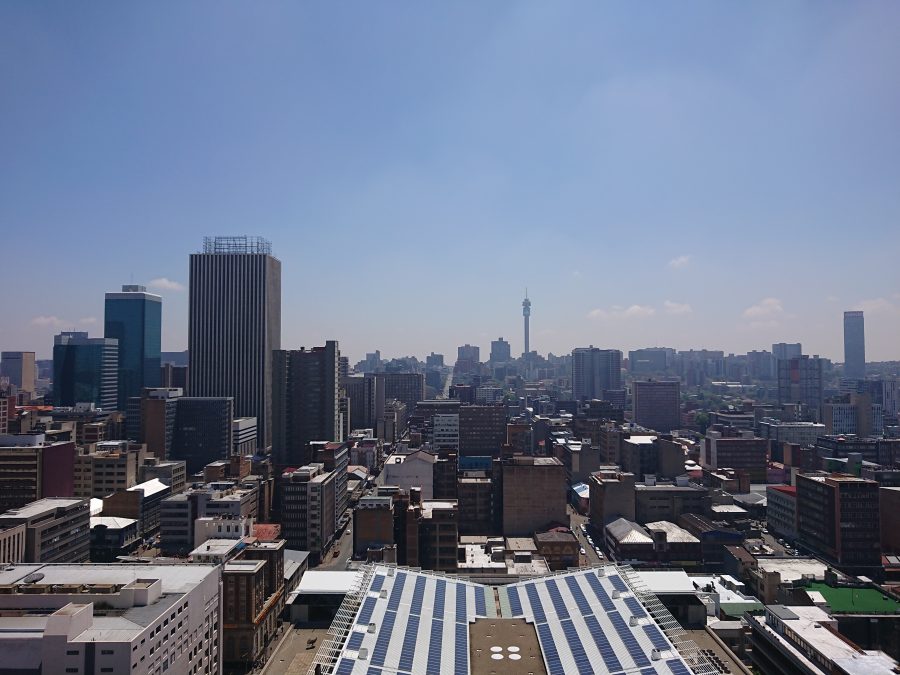
Learning across the region
The third session, facilitated by Amanda Gcanga, Country Lead for Urban Water Resilience Initiative & Senior Urban Policy Analyst at the World Resources Institute (WRI), a global research non-profit organization, looked at learning across the region through examples from other African cities and their stance towards groundwater. Kabisa Mwiyaluka, Engineer and Project Coordinator for Water Security at the Lusaka Water Supply and Sanitation Company (LWSC), showcased the Lusaka West Groundwater Extraction Project in Zambia’s capital Lusaka. Lusaka’s water supply stems to 60% from groundwater. To meet the demands of the growing population while avoiding contamination, which is likely to spread fast across the city due to the geological formation of fast water flows, the city focuses on the identification of priority aquifers and wellfields for public water supply and how to best protect them. The multi-stakeholder partnership Lusaka Water Security Initiative (LuWSI) helps to protect the key water resources through empowerment processes of communities while also bringing the private sector on board. Furthermore, eco-parks around the wellfields are supposed to prevent encroachment and pollution of vital water sources. Finally, the city is following a more localised rather than a centralised approach in its groundwater use, by dividing the boreholes into zones according to their geology, which further helps to protect them.
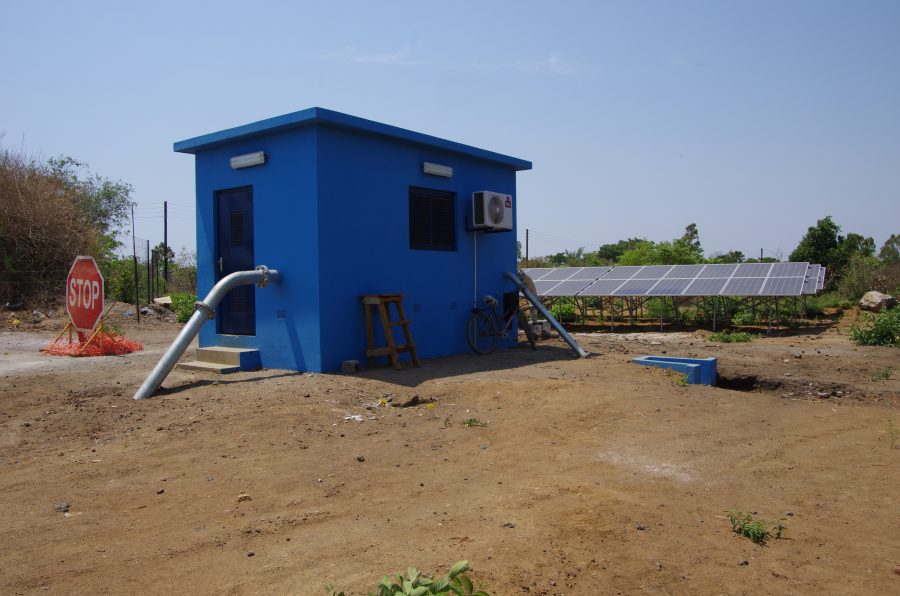
Dr. Zablon Adane, Research Associate at the World Resources Institute (WRI), presented “Innovative and sustainable solutions for groundwater management in Dire Dawa” in Ethiopia, which is fully reliant on groundwater. The city is facing a groundwater decline, quality challenges, and data and infrastructure issues. Therefore, WRI explores innovative and sustainable solutions to balance the various water demands, improve the recharge rates, safeguard the water quality, improve treatment and recycling, and provide sustainable sources.
Furthermore, Marc Manyifika, Country Lead for Urban Water Resilience at the World Resources Institute (WRI), re-evaluated “The Role of Groundwater in Building Urban Water Resilience in Musanze City” in Rwanda. The city is facing challenges due to a lack of knowledge on groundwater storage and its connectivity with surface water, as well as water quality degradation. To address these, opportunities around an underground network of caves, which are regulating the connectivity between the surface and groundwater, were identified. This included also the potential for stormwater management, flood control, inter-basin transfer, and recreational spaces for development in the city. Moreover, opportunities regarding water quality around ecological sanitary facilities development and nature-based decentralised wastewater treatment were discussed.
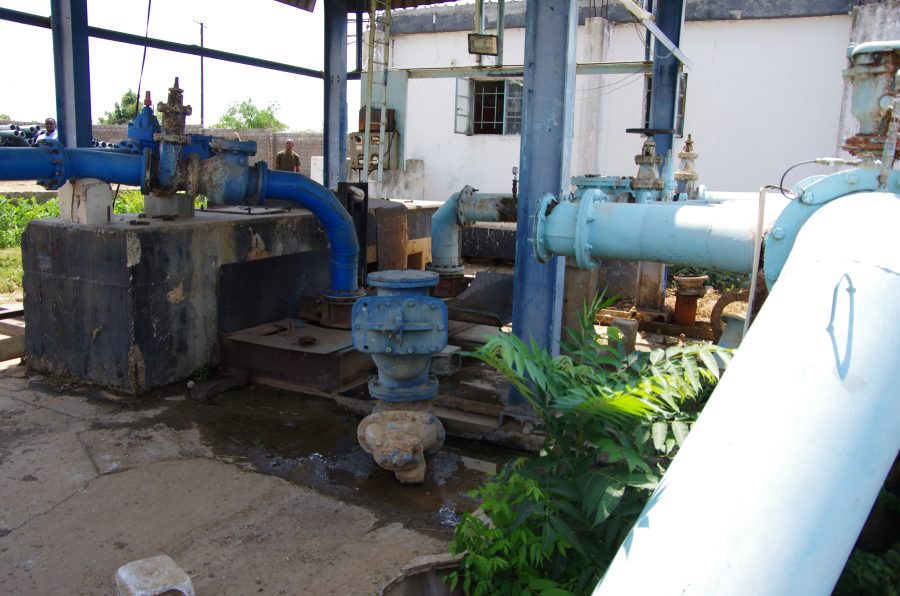
Water Financing Options
The last session of the event focused on Water Financing Options. Johann Lübbe, Disruption Specialist at the Development Bank of Southern Africa (DBSA), shed light on “Blended finance principles and community water supply initiatives”. In order to address the issues the water sector is facing, there is a need for a programmatic approach to make the sector more investment-friendly and create partnerships between the public and private sector. To this end, the DWS developed the National Water Programme with priority focus on non-revenue water reduction, water reuse, municipal infrastructure funding and agricultural water use/irrigation. Groundwater is considered as another potential programme. The plan is to prepare projects, facilitate and mobilise funding for the scaled implementation of projects by creating a centralized “centre of excellence” to drive preparation, facilitate funding and monitor implementation, as well customising funding solutions to support the implementation of a specific asset class. The blended finance principles include credit enhancement, concessional and grant funding to crowd-in private sector funding, making use of debt capital market instruments with all funding procured on a competitive basis, programmatic approaches and finance options used to create specific and dedicated asset classes. Different programmes will have different funding options, structures and solutions. Such a standardised approach could also offer an opportunity to establish a groundwater programme as a sub-programme under the National Water Programme.
Closing Remarks
Finally, Dr. Faith Lawrence, Country Coordinator for South Africa at GIZ NatuReS, closed the event by thanking the presenters for their insightful contributions and highlighted the significance of groundwater and learning from different experiences of cities, including their challenges, lessons, and innovations. She summarised the event by presenting the ten major insights she took away from the event:
- There is a need to build a case for conjunctive use of surface and ground water, as groundwater is an untapped resource and presents significant opportunities.
- Increased urbanization means increased demand for groundwater options. However, this is not without challenge: pollution, poor operations and maintenance, increased as well as decreased ground water levels and poor water quality are all critical issues to be addressed.
- Data and evidence in support of deciding for various groundwater options are key.
- Understanding of the specific local context cannot be underestimated. This also means different approaches need to address an array of complex challenges in different contexts.
- The challenge of localization means groundwater recharge is the responsibility of the user, but the necessary capacity is not readily available at the local level.
- There is a growing role for groundwater management and its strengthening in municipal governance approaches.
- There is a need to strongly promote collaboration, especially with regards to collective monitoring, as well as awareness raising.
- Cities across the region have very different experiences concerning groundwater.
- Public-private-partnerships play a critical role in sustainably managing groundwater in the long term.
- Innovative financing and blended options are being sought and already available in the market in support of the water business.